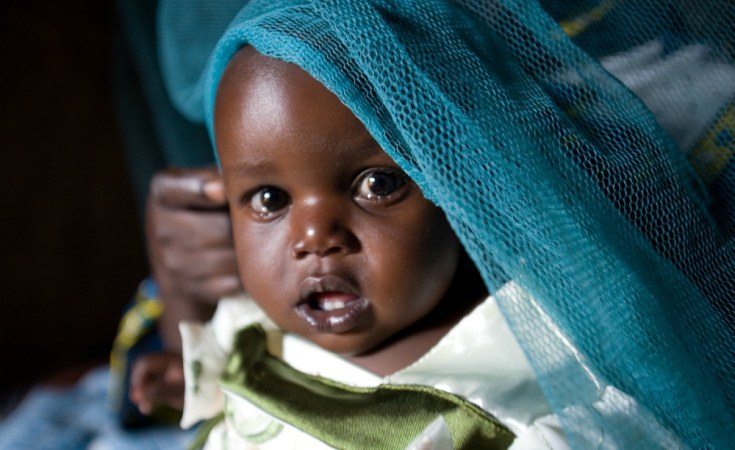As a child growing up in Angola, I saw countless friends and neighbors fall sick from malaria. The disease was so widespread that it seemed an inevitable and irrevocable part of life. I never dreamed that a few decades later, I might witness the end of malaria in my lifetime.
Thanks to advancements in how we prevent, detect and treat malaria, ending the disease is no longer a dream. Safe and effective insecticides, rapid diagnostic tests and powerful antimalarial drugs have reduced mortality rates in Africa by nearly 70 percent since 2000. In fact, some of our neighbors in Southern Africa might only be a few years away from eliminating the disease within their borders.
We still have a long way to go. The World Health Organization estimates that last year there were nearly 200 million cases of malaria in Africa, which claimed the lives of nearly 400,000 people. As deaths and incidence decline, sustaining progress becomes more challenging. It will require more precise monitoring of individual cases – often in hard to reach areas – and better coordination across countries to prevent resurgence of the disease.
In this complex environment, having the right tools is no longer enough. To rid our continent of malaria, we need to rebuild our fractured health systems.
As regional health advisor for ExxonMobil in Africa, I've seen firsthand how acutely health systems affect the fight against malaria. When they work, the majority of people stay healthy and malaria-free. When they don't, efforts to detect and treat malaria are costly, difficult and much less effective.
When patients come down with fever, they need access to clinics where health workers can diagnose their illness and provide affordable treatment. High standards of care need to be consistent across communities to ensure people aren't misdiagnosed or missed altogether, particularly as the number of cases goes down.
These systems must be integrated across national and regional levels to help governments respond nimbly to outbreaks and avoid breakdowns in health services. We also need strong disease surveillance systems that sharpen our ability to detect malaria and track emerging challenges like resistance to insecticides and antimalarial drugs.
There are several fundamental steps we can take to improve our health systems and put us on a firmer path toward ending malaria.
The first is to focus on local communities. We need more health workers trained to diagnose and treat malaria and deliver other essential care. We also need to make it easier for people in malaria-affected areas to reach hospitals and clinics. Studies show that better access to health facilities can dramatically reduce the burden of disease. Countries must also assure health coverage for the poorest and most vulnerable, who suffer disproportionately from malaria.
The second step is to recognize that no one sector can do this alone. Not only is there a role for governments, multilateral organizations and NGOs, but also for the private sector. Companies like ExxonMobil help by ensuring employees are safe. We also bring much-needed resources and business expertise to bear. Coordination and collaboration are critical. That's why public-private partnerships like Angola's National Forum for Malaria Partners, which aligns malaria activities across the country with the National Malaria Control Program, are key to sustaining success.
Ultimately, health systems will be strongest if the governments of countries affected by malaria lead the charge. This will require implementing smart health policies backed by sufficient resources. Over the past few years, many leaders across Africa have committed to increasing investments in infectious diseases like malaria and strengthening their health systems. This leadership will leave an invaluable legacy: their investments will be a down payment on Africa's future.
This future looks much brighter than I envisioned as a child. I'm hopeful that children born in a few decades will only read about malaria in history books. But to realize this future, we must work together to create stronger, more resilient health systems. It's the only way we'll end malaria for good.
Dr. Ana Margarida Setas-Ferreira is a physician from Angola and the Africa Regional Advisor for Community and Public Health at the Exxon Mobil Corporation. She has 20 years' experience leading health capacity-building programs, primarily in HIV/AIDS, malaria, tuberculosis and other infectious diseases.


